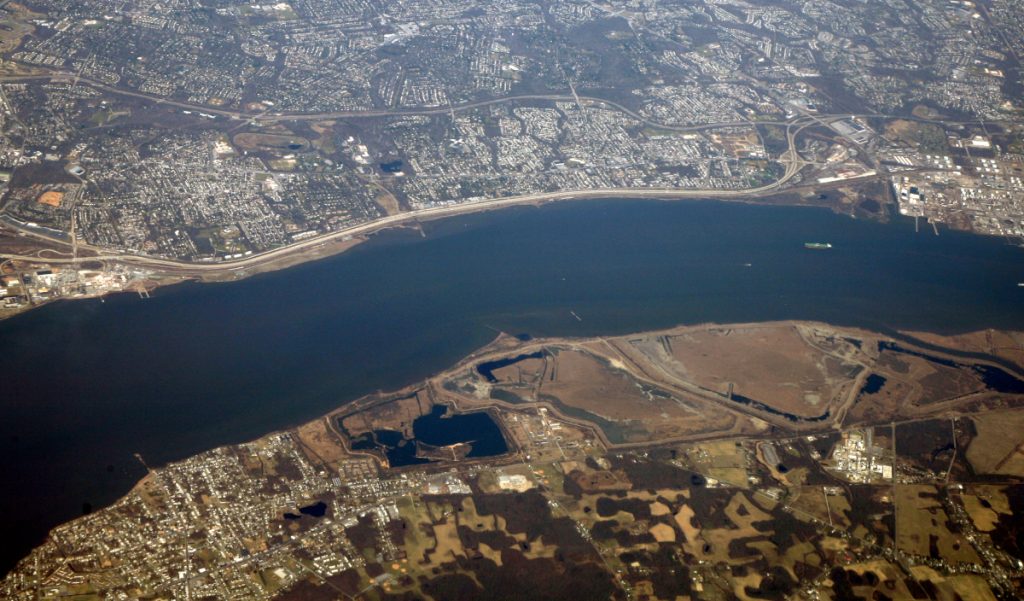
Delaware’s ambitious Edgemoor port proposal loses permits
| November 6, 2024
This article originally appeared on Spotlight Delaware. It is republished with permission.
By Karl Baker
Delaware officials suffered a key setback in their quest to massively expand the Port of Wilmington, after a judge in Philadelphia invalidated federal approvals that would have allowed them to construct a new container terminal in Edgemoor.
The judge’s ruling follows a lawsuit brought by ports in Pennsylvania and New Jersey that challenged construction and dredging permits previously awarded to Delaware by the U.S Army Corps of Engineers.
The Port of Wilmington is the last anchor of good-paying blue-collar jobs in Delaware. It also has suffered a string of financial blows over a dramatic six-year-period. How the state responds to the latest setback may determine the shape of Delaware’s workforce into the future.
It also is the latest chapter in a long-simmering powerplay between officials who oversee the Port of Wilmington and those at the Port of Philadelphia for the profits derived from cargo shipments along the Delaware River.
Read more: Delaware backs plan to quadruple trade capacity through Port Wilmington
In March, the Port of Philadelphia sued the U.S. Army Corps of Engineers for what it said was a “perfunctory and inadequate review” of Delaware’s permit applications seeking permission to build a Edgemoor port seawall, and to dredge the waters of the Delaware River between the proposed facility and the main shipping lane.
The Port of Philadelphia’s chief complaint was that cargo ships leaving Edgemoor would cause a dangerous marine bottleneck when turning into the river’s main channel, and obstruct the progress of others that were headed upstream toward ports in Pennsylvania and New Jersey.
Lawyers for the Port of Philadelphia also indicated that any such marine congestion would affect their port’s ability to see a return on an $140 million investment made into a Delaware River deepening project completed three years ago.

“Now that the project is completed at no cost to Delaware, it suddenly sees value in usurping the value of Pennsylvania’s investment,” the Port of Philadelphia attorneys said in court documents.
In his ruling, U.S. District Judge Mark Kearney said the Army Corps of Engineers acted “arbitrarily and capriciously” in its approval of the Delaware permits, asserting that the agency dismissed safety concerns posed by an Edgemoor container terminal
The decision comes five months after Gov. John Carney committed nearly $200 million to the construction of the proposed Edgemoor port, which would be built to handle the world’s biggest container ships that are increasingly being used by global shippers following a widening of the Panama Canal in 2019.
Read more: The Delaware River, already a major route for cargo, is poised to become even more competitive
In his announcement, Carney asserted that a new Edgemoor port would create “3,100 direct jobs.”
Now, Delaware has few avenues to challenge Judge Kearney’s ruling, because the state is not a party to the lawsuit. Still, Kearney in his written opinion stated that he expects the Army Corps of Engineers to “reevaluate the (Edgemoor) project consistent with this opinion.”
An attorney representing the Army Corps of Engineers declined to comment. A query sent to the agency’s press line was not returned.
Carney’s office also did not respond to email seeking a reaction to the judge’s decision.
In a statement emailed to Spotlight Delaware, Diamond State Port Corporation Director Eugene Bailey called Kearney’s decision “another example of the ports in Philadelphia trying to stop Delaware from building a new facility at Edgemoor to expand our maritime economy and create jobs for Delaware families.”
“While we were not part of the lawsuit, we will work with the Corps to address any concerns so that we can move forward as quickly as possible,” he said.
Moving forward from the decision will almost certainly involve a new Delaware governor as any appeal of Kearney’s decision, or any renewed permit application, would extend beyond January when Carney steps down from his position following the end of his second term.


![DC_Image [Image 4_Assunpink Meets Delaware] meets Delaware The Assunpink Creek on its its way to meet the Delaware River. The creek passes through woods, industrial and commercial areas and spots both sparkling and filled with litter.](https://delawarecurrents.org/wp-content/uploads/bb-plugin/cache/DC_Image-4_Assunpink-meets-Delaware-1024x768-landscape-14f069364113da5e8c145e04c9f2367c-.jpg)



